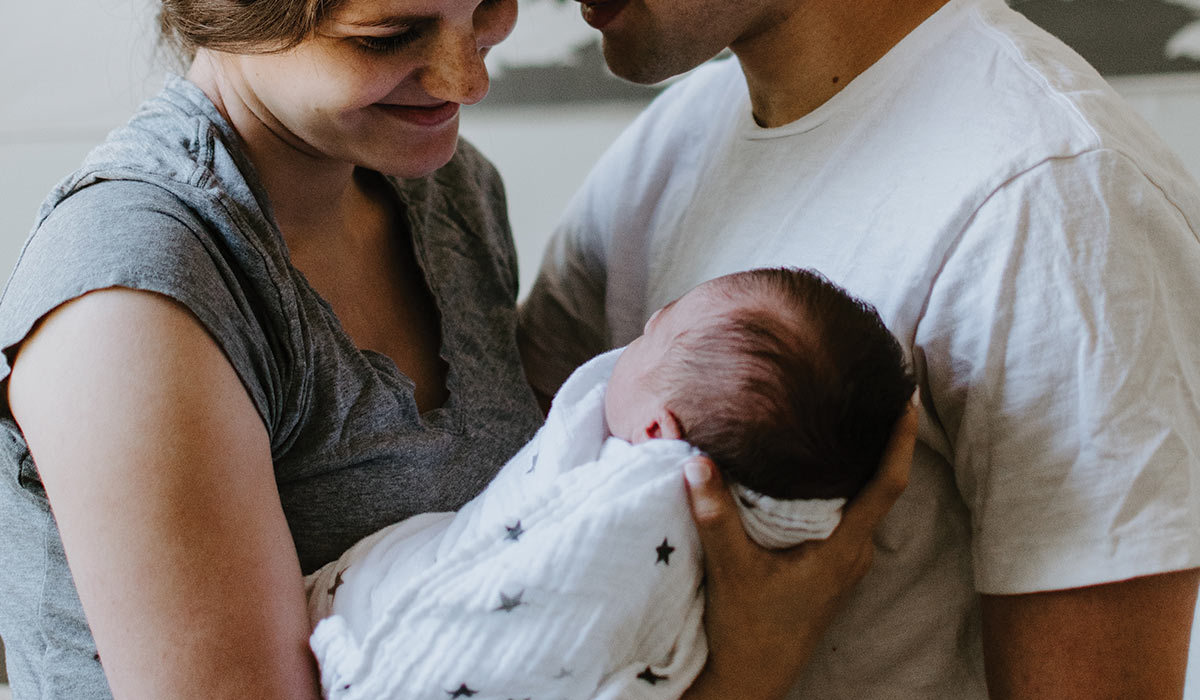Family of Origin: Attachment and Epigenetics

This week, we’re wading into deep waters as Dan kicks off a new series all about family of origin issues and dynamics. Many of the most complicated, painful questions we receive come back to this topic, and with good reason: In story engagement, restoration from trauma, and the day-to-day work of living as people of truth, beauty, and goodness in a broken world, our earliest family experiences often serve as the lens through which everything else is processed.
Our culture routinely praises messages of independence, asserting that you are what you make of your life, and that no one is responsible for your choices except you. Dan affirms that message as an honorable corrective to tendencies to blame, but argues that it is also “defensive and isolated—profoundly self-centered at its core presumption.” Instead, bringing movement and light to that which has felt dark and stagnant for years requires an awareness of both the effects of our choices and the ways the choices of others have shaped who we are today.
Dan: “Our world and our relational world, so often in our most formative framework as children, as babies, shape in some ways some of the core infrastructure of how we go about relating to the world.”
To dive into this series, Dan reflects on the groundbreaking field of epigenetics, which has gone far deeper than the age-old binary debate between nature and nurture. Together, the fields of epigenetics and attachment theory are revealing staggering data about the ways in which our earliest experiences—and the experiences of our parents and grandparents—continue to play out in our DNA, our personalities, and our styles of relating. Experiences of harm, abandonment, and misattunement become literally wired into our brains.
Dan: “The history of your family, and the life of the individuals in your family, research is indicating, play a profound role in not just social construct, but actually the very nature of being—our DNA. When we start owning that we are highly related individuals, shaped by interactions and shaped by biology, then we begin to say—oh my goodness, why is it as a culture, as an individual, we’re not taking the reality of our family and our stories, and their stories, far, far more directly into our own lives?”
“We are highly related individuals, shaped by interactions and shaped by biology.”
Dan briefly covers some of the core categories of attachment—containment, consistency, and repair—and how experiences of secure and insecure attachment might shape how the past continues to play out in the present. In case you haven’t seen it, Dan recommends the Still Face Experiment—a chilling video that shows the profound terror of a lack of engagement and the heartbreak of an insecure attachment.
Dan: “Trauma in our families, trauma in our own lives, creates the potential for a loss of joy, a loss of ability to receive and give—that is, to love.”
As this series continues, Dan will discuss how we begin the hard, slow work of building new attachment experiences and literally rewiring our brains. While you’re wading through these weighty, complex categories, Dan warns against the muck of determinism where we spiral into blame toward others and resign ourselves to the belief that our formative experiences have the final say. Because the hope of resurrection reminds us again and again, in spite of the depth of our harm and the stubbornness of our patterns: change is still possible.
Dan: “God has made us to be highly, highly resistant to harm, and highly open to good. […] I wouldn’t be doing this series or engaged in the process of training and doing therapy if I didn’t believe that there is the potential for radical, radical change.”
